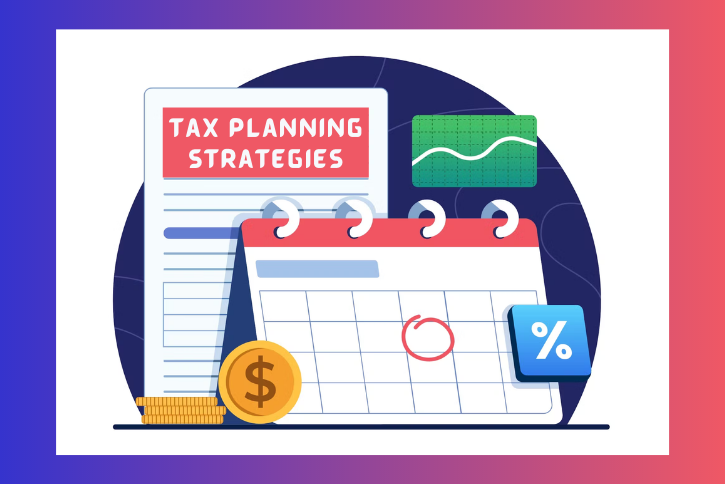Summary
- Businesses must pay federal, state, and local taxes, which often include income, employment, and sales taxes.
- The type of business structure, such as sole proprietorship or corporation, significantly impacts tax obligations.
- Businesses can reduce taxable income by taking advantage of deductions like office expenses and travel costs.
- Quarterly estimated tax payments are crucial to avoid penalties and manage cash flow effectively.
- Keeping accurate records is essential for claiming deductions and credits accurately.
Grasping the Basics of Business Taxes
Starting a new business is thrilling, but it also comes with a ton of responsibilities, including taxes. Understanding the various taxes you’ll face is crucial to keep your business financially healthy. Taxes aren’t just a once-a-year headache; they’re an ongoing obligation. You need to know what types of taxes apply to your business and how to manage them efficiently.

Various Taxes for Startups
Startups usually face several kinds of taxes. Here’s a brief overview:
- Income Tax: This is a tax on the profit your business makes. Both federal and state governments may require it.
- Employment Tax: If you have employees, you’ll pay taxes related to their employment, including Social Security and Medicare taxes.
- Sales Tax: Depending on your location and the nature of your business, you may need to collect sales tax from customers.
Each type of tax comes with its own set of rules and deadlines. Missing these can lead to penalties, so it’s crucial to stay informed.
Meeting Federal and State Tax Obligations
It’s important for all businesses to satisfy their federal and state tax obligations. The federal government mandates that businesses file income tax returns each year. However, the requirements at the state level can differ. Some states impose their own corporate income taxes, while others may emphasize sales or property taxes.
Adding to the complexity, each state has its own set of rules. For example, some states mandate that businesses file estimated tax payments on a quarterly basis, while others do not. It’s crucial to be aware of the specific requirements in your state.
Essential Tax Factors for New Businesses
When launching a new business, the structure you select can greatly impact your taxes. Every structure has pros and cons, so it’s crucial to choose the one that aligns with your business objectives and financial status.
Picking the Best Business Structure
The structure of your business will dictate your tax obligations. Here’s a quick rundown of the most popular structures:
- Sole Proprietorship: This is the most basic form of business, where you and your business are the same entity. Taxes are filed on your personal tax return.
- Partnership: This is a business owned by two or more people. Each partner reports their share of income and expenses on their personal tax return.
- Corporation: This is a separate legal entity. Corporations pay taxes on their income, and shareholders pay taxes on dividends.
- Limited Liability Company (LLC): This offers the liability protection of a corporation with the tax benefits of a partnership.
Selecting the right structure can save you money and lessen your tax burden. It’s worth speaking with a tax advisor to make the best choice for your new venture.
First Steps in Tax Registrations and Requirements
After you’ve decided on the type of business you want to start, you’ll need to apply for the necessary tax IDs and licenses. Most businesses need an Employer Identification Number (EIN) from the IRS. You’ll need this number for tax purposes and to open a business bank account.
Also, based on what your business does, you may have to sign up for state sales tax permits or other licenses. It’s important to get these registrations correct from the beginning so you don’t have problems later on.
Why Recordkeeping is Essential for Deductions
Recordkeeping isn’t just a good practice, it’s essential for businesses who want to get the most out of tax deductions. Good recordkeeping helps you keep track of expenses, identify what can be deducted, and provide proof if you’re audited. If you don’t keep good records, you might miss out on deductions that could save your business money. For more information, check out these small business tax documentation tips.
Begin by sorting out your receipts, invoices, and bank statements. Utilize accounting software to classify expenses and produce reports. This not only makes tax filing easier, but it also gives you a better understanding of your financial situation. Keep in mind that the IRS mandates businesses to keep records for a minimum of three years, so having a dependable system is essential.
Paying Taxes Quarterly
Unlike workers who have taxes taken out of their paychecks, business owners are required to pay estimated taxes throughout the year. This is to ensure that you don’t end up with a huge tax bill at the end of the year, which could put a strain on your cash flow. For more detailed guidance, consider these small business tax planning strategies.

Usually, estimated taxes are due on four dates: April 15, June 15, September 15, and January 15 of the next year. Making these payments on time is important to avoid fines and interest. It’s also a good financial management strategy, as it requires you to keep an eye on your income and expenses on a regular basis. For more insights on managing your finances, explore small business tax documentation tips.
Why Should You Estimate Your Taxes Quarterly?
The IRS mandates that businesses make quarterly estimated tax payments to ensure that they are paying their dues throughout the year. This method prevents businesses from underpaying and being hit with a large tax bill in April. By estimating your taxes quarterly, you can manage your cash flow more effectively and avoid any unexpected surprises.
Additionally, making payments on a quarterly basis helps you keep up with your financial responsibilities. It encourages you to regularly assess how your business is doing and make any necessary changes. This proactive approach can result in improved financial decision-making and a stronger bottom line.
Estimating Your Taxes
Estimating your taxes involves predicting your income, deductions, and credits for the year. Begin by predicting your total income, then subtract any business expenses and deductions you expect. The resulting figure is your estimated taxable income. For more insights, check out these small business tax guides.
Then, figure out your estimated tax liability by applying the correct tax rate to your estimated taxable income. Your quarterly payment is this amount divided by four. Remember that if your business’s financial situation changes significantly during the year, your estimates may need to be adjusted. For more insights, explore startup business tax strategies to ensure your calculations are accurate.
How to Pay Your Estimated Taxes
It’s simple to pay your estimated taxes. The IRS provides a few different ways to pay, including withdrawing funds electronically, using a credit card, or sending a check or money order. The most convenient method is to use the Electronic Federal Tax Payment System (EFTPS), which lets you set up payments ahead of time and gives you a confirmation when your payment has been made.
Just as with the IRS, your state’s tax agency should offer similar payment options. Make sure to check with your state’s department of revenue to get the specifics. Staying on top of these payments is key to keeping your business financially healthy and avoiding penalties.
Understanding Payroll Taxes
For businesses with employees, it’s critical to understand payroll taxes. These taxes encompass Social Security, Medicare, and federal income tax withholding. As an employer, you must deduct these taxes from your employees’ wages and submit them to the IRS. For more detailed information on your employee responsibilities and obligations, check out our comprehensive guide.
Payroll taxes may seem complicated, but they are mandatory. If you fail to meet the requirements for payroll taxes, you could face heavy fines and interest fees, so it’s important to stay knowledgeable and orderly. For more information on staying organized, check out these tax documentation organization tips.
What Employers Need to Do
If you’re an employer, it’s your job to figure out, withhold, and remit payroll taxes. You need to do this for both the employee’s share, which you take out of their wages, and the employer’s share, which you have to pay on your own. For further guidance, consider seeking legal advice on business taxes.
Besides federal taxes, you might also need to pay state and local payroll taxes. These can differ depending on where you are, so make sure to look up the specific rules for your location. Most importantly, keep track of when you need to file to avoid any fines. For more guidance, consider consulting business tax legal advice to ensure compliance.
How to Handle Withholdings Effectively
- Implement payroll software to automatically calculate withholdings and ensure they are correct.
- Regularly check withholding amounts to make sure they reflect any changes in tax laws or changes in an employee’s status.
- Communicate with your employees about their options for withholdings and encourage them to update their W-4 forms when necessary.
Handling withholdings effectively not only ensures you are compliant with the law, but it also helps to build trust with your employees. By efficiently managing payroll taxes, you are showing your dedication to the financial integrity of your business. For further guidance, consider exploring small business tax preparation services to ensure accuracy and compliance.
Moreover, keeping a clear and orderly payroll system can increase employee morale and decrease turnover, which ultimately benefits your business’s bottom line. For more insights on managing employee responsibilities, check out this small business tax guide.
Long-Term Tax Planning Tactics
Long-term tax planning isn’t just about meeting your requirements; it’s about refining your financial strategy to reduce taxes and increase profits. By looking ahead, you can make knowledgeable choices that will benefit your business for years to come.

Advice for Tax Planning All Year Long
Good tax planning takes a year-round commitment. Here are some things to remember:
- Make it a habit to regularly check your financial statements. This will help you spot opportunities to save on taxes.
- Always consult with a tax professional. This way, you’ll always be up-to-date on any changes in tax laws and regulations.
- Think about timing your income and expenses strategically. This will help you minimize your tax liability.
- Consider investing in tax-advantaged accounts like retirement plans. This will help you reduce your taxable income.
By making these strategies a part of your business operations, you can make sure you’re not only meeting your tax obligations, but also setting your business up for long-term success.
Hiring a Tax Professional
Taxes can be a daunting task, particularly for new business owners. Hiring a professional tax advisor can offer a sense of security and guarantee that you’re taking full advantage of deductions and credits. A tax professional can provide tailored advice, assist you in comprehending intricate tax laws, and even stand in for you if you’re audited. For more information, consider exploring trusted experts in small business tax advising.
Choose a tax advisor who has experience in your field. They should understand the unique tax issues your business may encounter. In addition, a good tax advisor will keep you updated on changes to tax laws that could affect your business. This proactive approach can save you money and avoid expensive errors.
Concluding Thoughts on Business Tax Planning
For any new business to be financially successful, effective tax planning is key. By understanding the types of taxes you’ll be liable for, choosing the right business structure, and keeping up with your obligations, you can reduce your tax liability and focus on expanding your business. Remember, taxes aren’t something you deal with once a year; they’re a responsibility you have all year round.
It is essential to maintain precise records, pay projected taxes promptly, and seek professional advice when necessary. These steps will not only ensure that you fulfill your tax obligations, but they will also set your business up for long-term success.
Common Questions
What kind of taxes can small businesses expect to pay?
Small businesses can expect to pay several types of taxes, such as:
- Income Tax: This tax is assessed on your business’s profits and is mandated by both state and federal governments.
- Employment Tax: If your business has employees, you are responsible for paying taxes related to their wages, such as Social Security and Medicare taxes.
- Sales Tax: Depending on the nature of your business and where it is located, you may be required to collect and remit sales tax on the goods and services you sell.
Being aware of these taxes and when they are due is essential to avoid penalties and ensure your business remains in compliance. For more information on your employee responsibilities regarding taxes, check out this guide.
What impact does the type of business structure have on taxes?
The type of business structure you choose can greatly affect your tax responsibilities. For example, sole proprietorships and partnerships declare business income on personal tax returns, which can make filing easier but doesn’t offer protection from liability. Meanwhile, corporations are taxed separately, which can provide advantages such as potential tax deductions for benefits.
Deciding on the correct structure requires taking into account tax consequences as well as other considerations such as liability and administrative needs. Speaking with a tax consultant can assist you in making the most appropriate choice for your particular circumstances.
What are some common tax deductions for startups?
Startups can lower their taxable income by taking advantage of various tax deductions. Typical deductions include expenses for office supplies, travel, and marketing. Plus, the costs to start your business, such as legal fees and equipment purchases, might be deductible.
It’s important to keep a thorough record of all business expenses to ensure these deductions are claimed accurately. In the event of an audit, having the right paperwork is key.
What makes estimated taxes so vital for new businesses?
Estimated taxes are key because they assist businesses in controlling cash flow and avoiding penalties. Unlike employees, who have taxes taken out of their paychecks, business owners must pay taxes on their profits throughout the year. This is accomplished by making estimated tax payments each quarter.
Keeping on top of your estimated taxes is a great way to stay on top of your finances and avoid a hefty tax bill at the end of the year. By being proactive, you can avoid getting into trouble with the IRS and having to pay expensive fines. For more information, check out these small business tax planning strategies.
What’s the best way to stay on top of my tax paperwork?
It’s crucial to keep your tax paperwork in order if you want to claim deductions and credits correctly. Start by organizing your receipts, invoices, and bank statements. You can use accounting software to help categorize expenses and create reports. This will not only make filing your taxes easier but will also give you a better idea of your financial situation.
Don’t forget that the IRS mandates businesses to maintain records for a minimum of three years, so having a dependable system is vital. Regularly checking and updating your records will help you stay tidy and ready for tax season.
What do I need to know about payroll tax requirements?
For businesses with employees, it’s important to be aware of payroll tax requirements. These include Social Security, Medicare, and federal income tax withholding. As an employer, you have to withhold these taxes from your employees’ wages and then send them to the IRS. For more detailed guidance, consider exploring small business tax documentation tips to ensure compliance.
Aside from federal taxes, you might also need to pay state and local payroll taxes, which can differ depending on where you are. It’s crucial to keep up with filing deadlines and maintain compliance to avoid fines.
Payroll software is a great tool for automatically calculating withholdings and ensuring that your payroll tax obligations are met accurately and easily.

